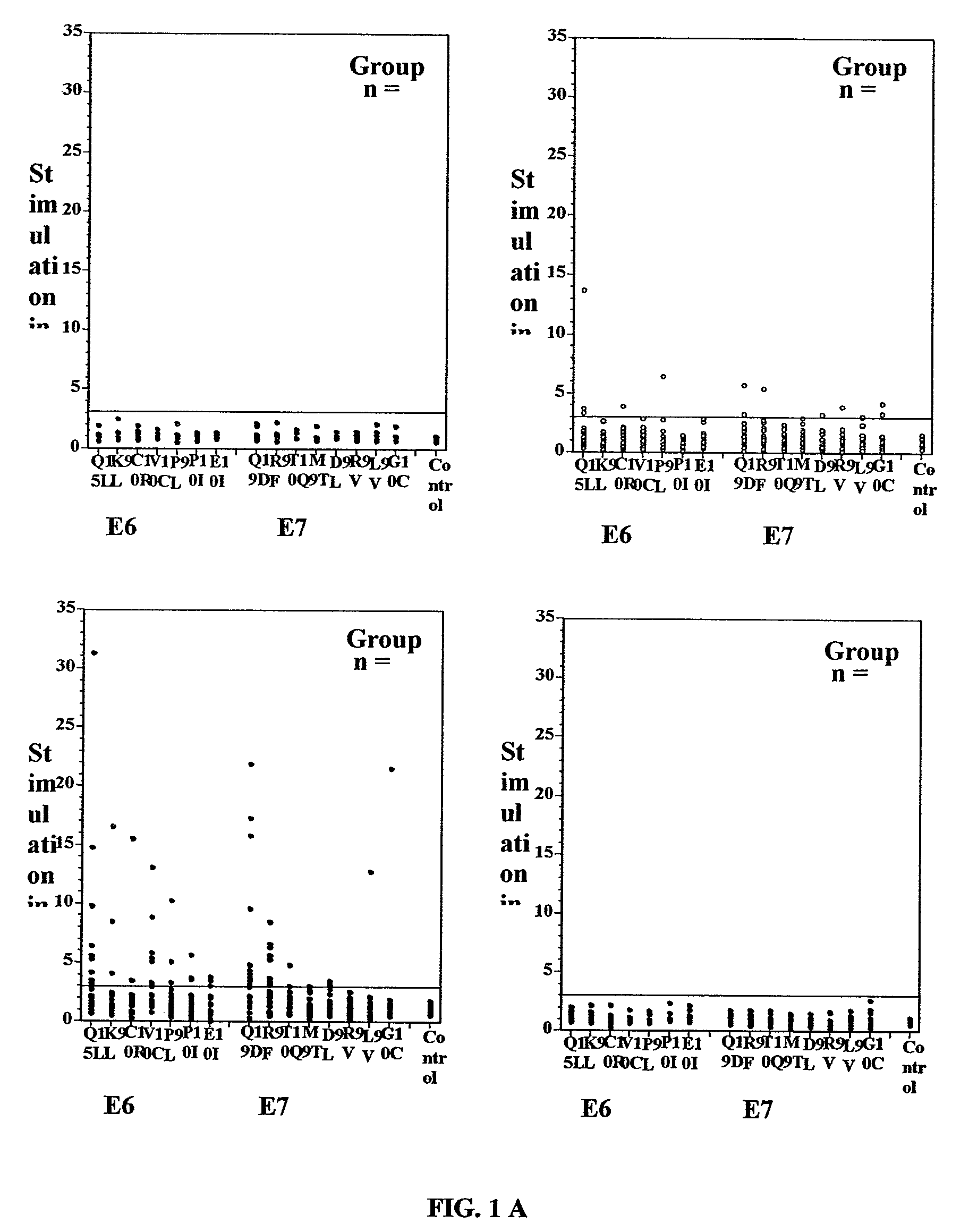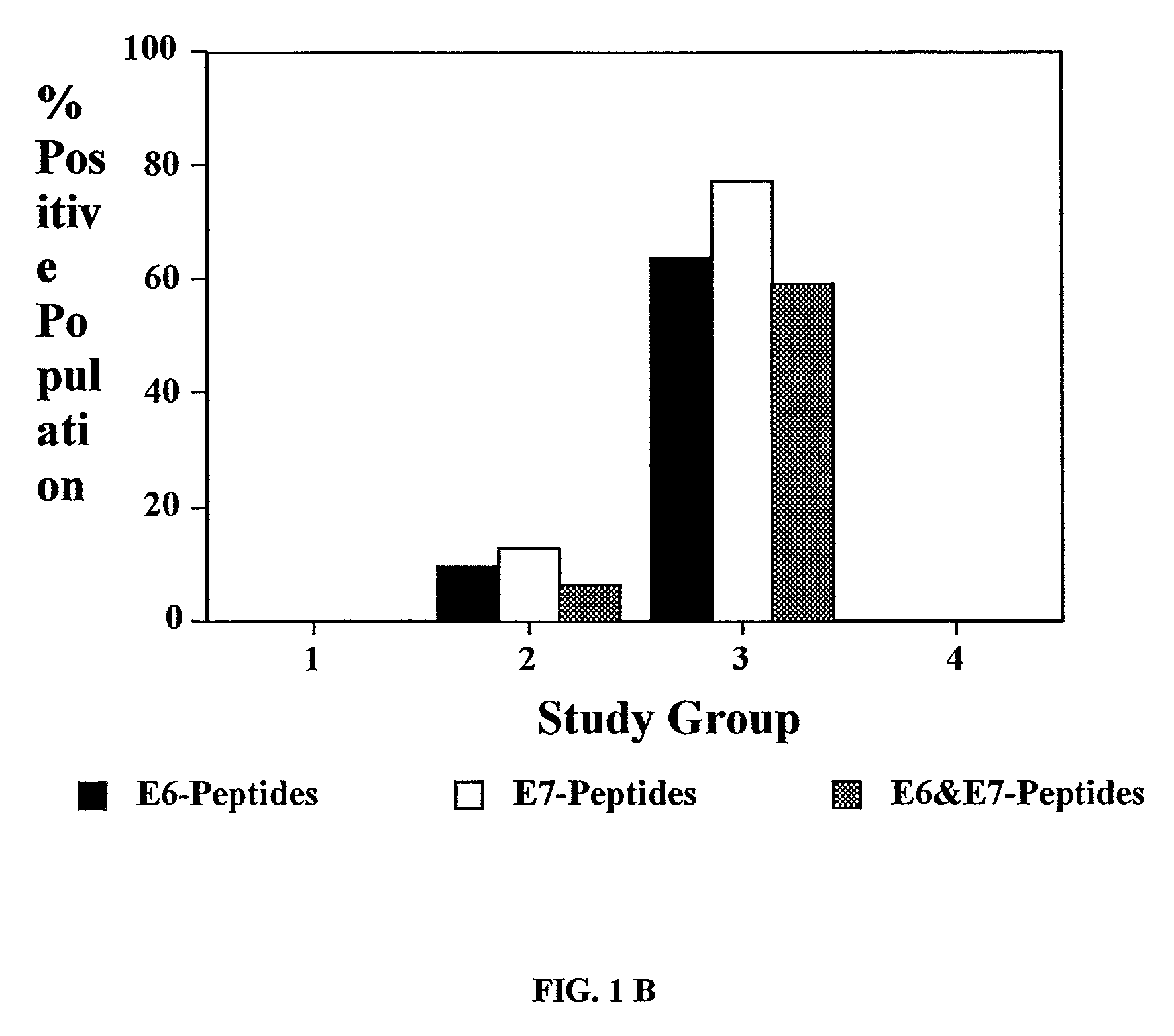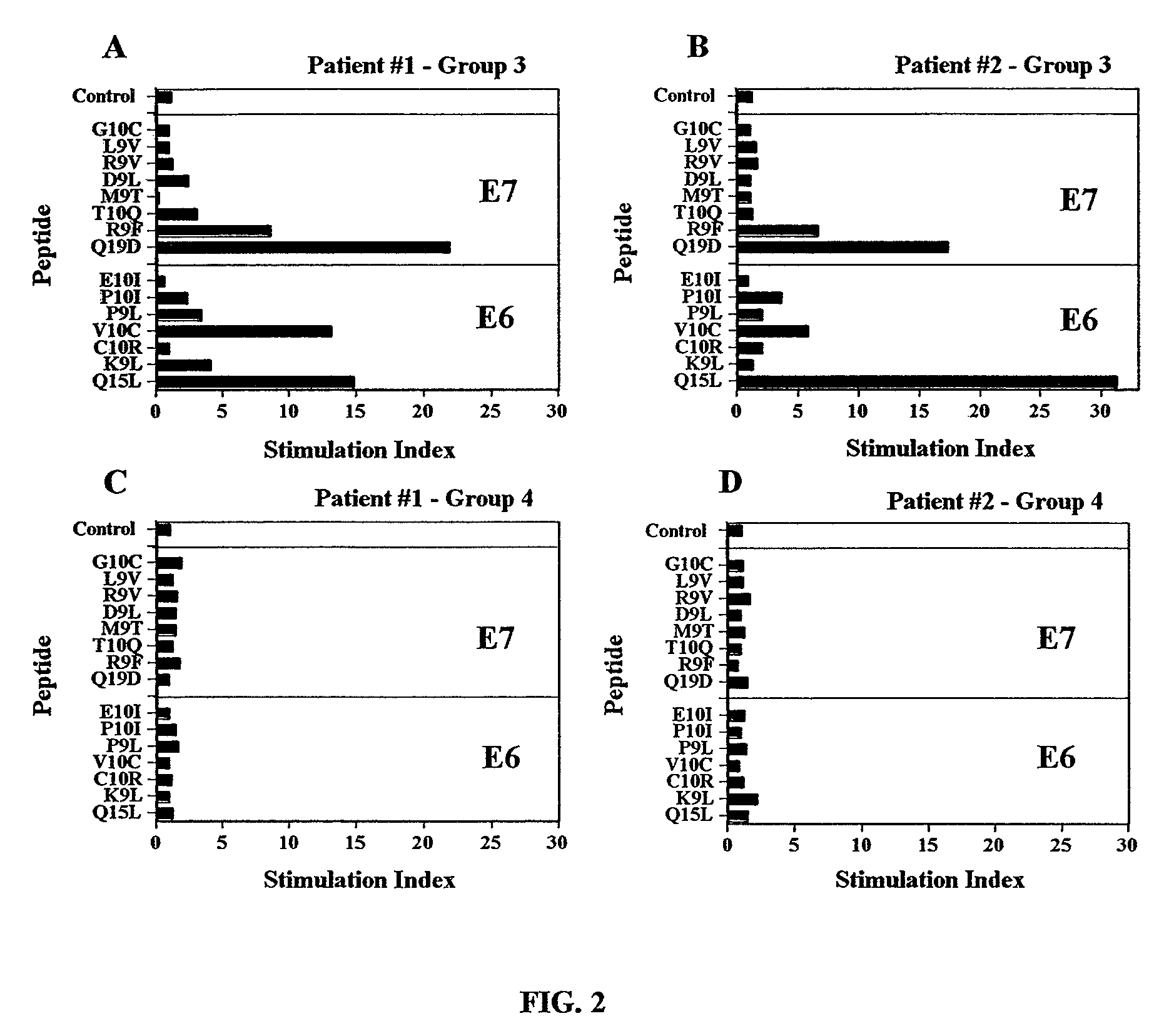Methods and compositions relating to HPV-associated pre-cancerous and cancerous growths, including CIN
a technology of precancerous and cancerous growths and compositions, applied in the field of immunology, virology, oncology, can solve the problems of e6 or e7 proteinaceous compound of hpv having a greater risk of physiological effects and bad prognosis, so as to reduce the risk, improve the prognosis, and improve the prognosis
- Summary
- Abstract
- Description
- Claims
- Application Information
AI Technical Summary
Benefits of technology
Problems solved by technology
Method used
Image
Examples
example 1
Material and Methods
Patients
[0362]The present embodiment of the invention comprises a study population that was selected from patients seen at the colposcopy clinic of The University of Texas M. D. Anderson Cancer Center. Informed consent was obtained from the patients, and all procedures were performed according to an Institutional Review Board-approved protocol. The women were 17 years of age or older and not pregnant with no medical history of immune disorders. Four groups of women were identified for this study. Group 1 consisted of six women without cytological or histological diagnosis of CIN and with an HPV negative test (CIN(−) / HPV(−)). Group 2 included 31 women with a histological diagnosis of CIN and HPV positive test (CIN(+) / HPV(+)). Groups 3 and 4 were selected from women who had undergone ablative or excisional treatment for CIN at the colposcopy clinic at least 6 months before the study. The women in groups 3 and 4 were (CIN(+) / HPV(+)) before CIN treatment. However, at...
example 2
[0369]A total of 69 women ranging in age from 17 to 54 years (median 31 years) were enrolled in the study. Of these 69 women, 52 were white, 8 each were African American and Hispanic, and one was Asian (Table 2). PBMC from these women were analyzed for proliferative response to the synthetic peptides corresponding with antigenic sequences of the E6 and E7 oncoproteins of HPV-16 (Table 3) (FIG. 1A).
[0370]Analyses of proliferative responses specific to various E6 and E7 peptides in each of the four different groups of patients revealed that the majority of patients in group 3 (Recur(−)) exhibited positive responses (SI≧3.0) to all the seven E6 peptides and 7 / 8 E7 peptides tested (FIG. 1A). On the other hand, only 5 / 31 untreated patients in the group 2 (CIN(+) / HPV(+)) and none in the groups 1 (CIN(−) / HPV(−)) and 4 (Recur(+)) showed responses to any of the peptides tested. This is summarized in FIG. 1B.
[0371]The relationship between proliferative response to E6 and / or E7 peptides and po...
PUM
 Login to View More
Login to View More Abstract
Description
Claims
Application Information
 Login to View More
Login to View More - R&D
- Intellectual Property
- Life Sciences
- Materials
- Tech Scout
- Unparalleled Data Quality
- Higher Quality Content
- 60% Fewer Hallucinations
Browse by: Latest US Patents, China's latest patents, Technical Efficacy Thesaurus, Application Domain, Technology Topic, Popular Technical Reports.
© 2025 PatSnap. All rights reserved.Legal|Privacy policy|Modern Slavery Act Transparency Statement|Sitemap|About US| Contact US: help@patsnap.com



